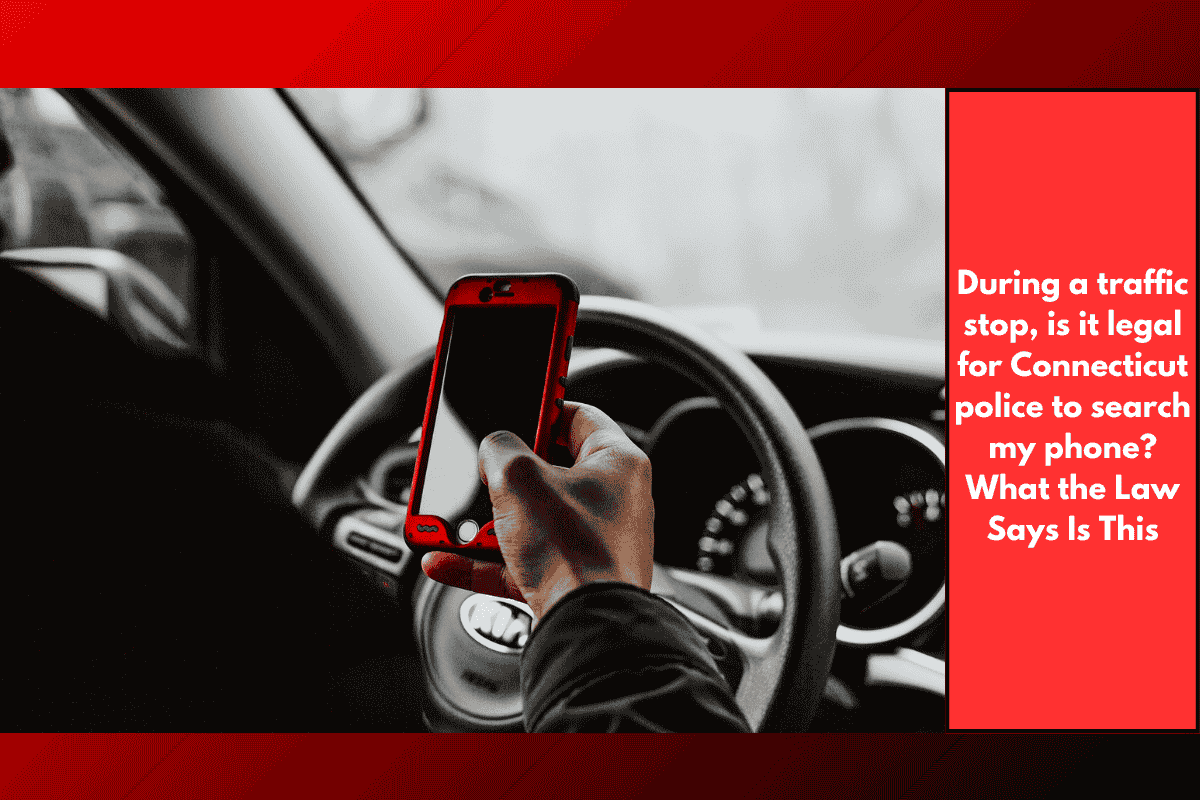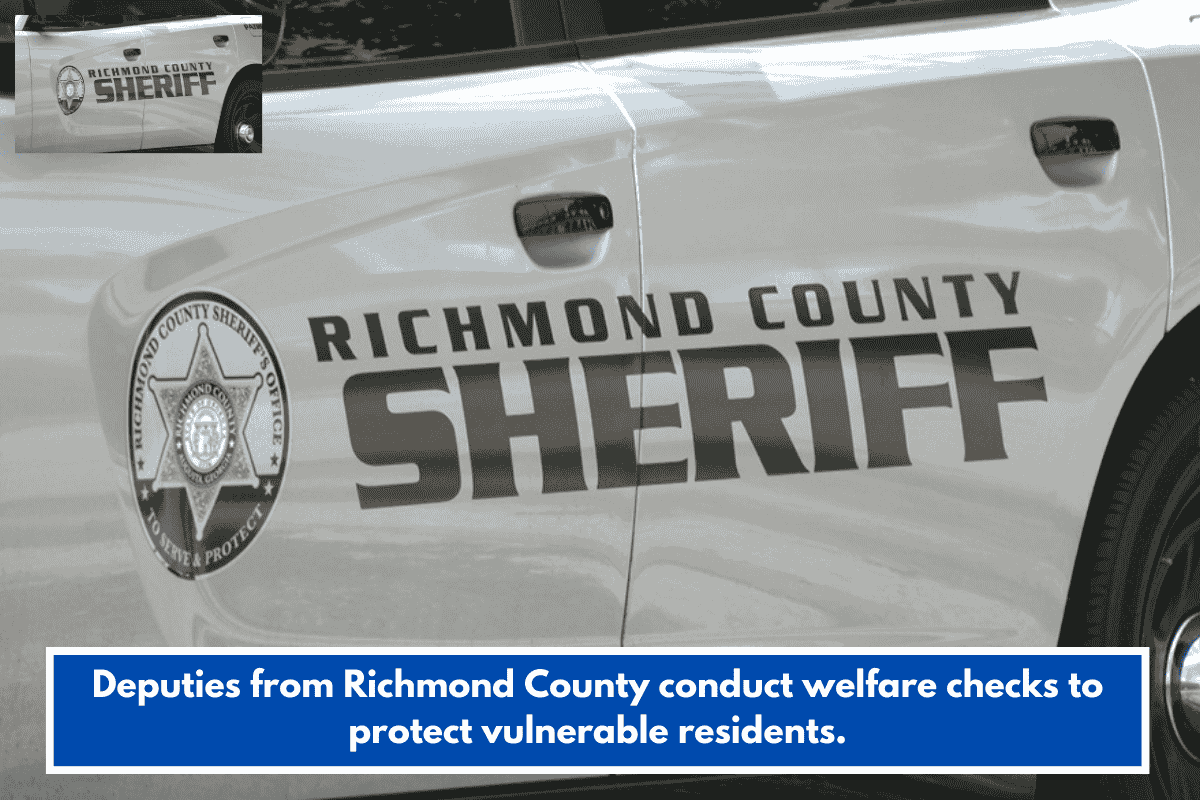Getting pulled over during a traffic stop can be a stressful experience. Many drivers are aware that law enforcement may check their license, registration, and insurance, but what about your phone? Can Connecticut police legally search your phone during a routine traffic stop? This is a question many people wonder about. The short answer is that police cannot simply search your phone without a valid reason or consent, but there are exceptions based on the circumstances. Let’s break down what Connecticut law says about phone searches during traffic stops.
Searches of Phones Under Connecticut Law
In Connecticut, as in the rest of the United States, the Fourth Amendment protects individuals from unreasonable searches and seizures. This means that police generally need a warrant or your consent to search your personal property, including your phone. However, there are some important exceptions to keep in mind.
Can Police Search Your Phone Without a Warrant?
The answer to this question depends on the circumstances of the stop. Under normal circumstances, Connecticut police cannot search your phone without either a warrant or your explicit consent. However, there are situations where police may have the legal right to search your phone without a warrant.
Consent: The simplest way police can search your phone is if you give them permission. If you voluntarily hand over your phone and allow them to search it, they can do so. However, you are not required to consent, and if you refuse, they cannot search your phone unless they have another valid legal reason to do so.
Search Incident to Arrest: If you are arrested during the traffic stop, police may have the right to search your phone as part of the search incident to your arrest. This means that if you are taken into custody, the police can search your phone for evidence related to the arrest, as long as they follow proper procedures. However, the search must be limited to what is reasonably related to the arrest. For example, if you are arrested for a drug offense, they may search your phone for evidence related to that charge. But if the search is more general or goes beyond the scope of the arrest, it may violate your rights.
Exigent Circumstances: In some cases, police may be able to search your phone without a warrant or your consent if there are exigent circumstances. This means that if they believe there is an immediate need to search your phone (such as to prevent the destruction of evidence), they may be able to do so without a warrant. These situations are rare, and police would need to show that there was an urgent need for the search.
The Riley v. California Decision: A Key Case
In 2014, the U.S. Supreme Court made an important ruling in the case Riley v. California. The Court ruled that police cannot search the contents of a cell phone without a warrant, even if the person is arrested. This ruling applies nationwide, including in Connecticut. The Court recognized that cell phones contain vast amounts of personal information, and searching them without a warrant violates individuals’ privacy rights.
The ruling made it clear that police must obtain a warrant before they can search the contents of a phone unless there are specific exceptions, such as consent, an emergency, or a search incident to arrest. This ruling has shaped how phone searches are handled during traffic stops and other interactions with law enforcement.
What to Do If Police Ask to Search Your Phone
If you are pulled over and police ask to search your phone, you have the right to refuse. You can politely decline to allow the search, and you do not need to give a reason for your refusal. If the police do not have a warrant or a valid legal reason for searching your phone, you do not have to comply with the request.
That said, it’s important to stay calm and respectful during the interaction. If you refuse the search, the police may try to continue with the stop or may request a warrant to search your phone. If they have a valid legal reason for searching your phone, they may proceed with the search, but you can still assert your rights and request legal counsel if needed.
When Police Can Search Your Phone During a Traffic Stop in Connecticut
To summarize, Connecticut police cannot search your phone during a routine traffic stop unless:
You give them consent to do so.
You are arrested, and the search is related to the arrest.
There are exigent circumstances (such as a risk of evidence destruction).
Without these conditions, a police officer cannot search your phone without violating your constitutional rights.
In Connecticut, police cannot search your phone during a routine traffic stop unless they have a valid legal reason, such as your consent, an arrest, or an emergency situation. The law protects your right to privacy under the Fourth Amendment, and police must obtain a warrant or your permission to search your phone. If you’re asked to allow a search, remember that you have the right to refuse, and you should stay calm and respectful. If you’re arrested, a phone search may be permitted, but it must be limited to the scope of the arrest.
SOURCES
[1] https://ctmirror.org/2024/05/07/ct-traffic-stop-secondary-violation/
[2] https://www.acluct.org/en/know-your-rights/know-your-rights-stopped-police-connecticut
[3] https://www.acluct.org/sites/default/files/field_documents/know_your_rights-_recording_the_police_11.pdf
[4] https://www.cga.ct.gov/2024/rpt/pdf/2024-R-0119.pdf
[5] https://www.carlsondumeer.com/firm-blog/2022/january/protecting-yourself-during-traffic-stops/














